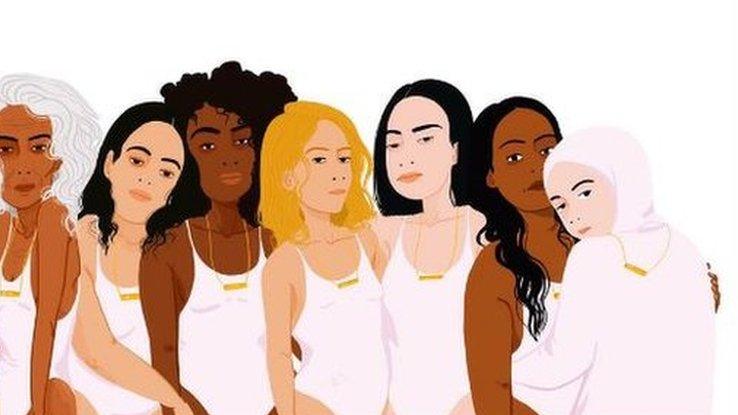France burkini ban: Mayors urged to heed court's ruling
- Published
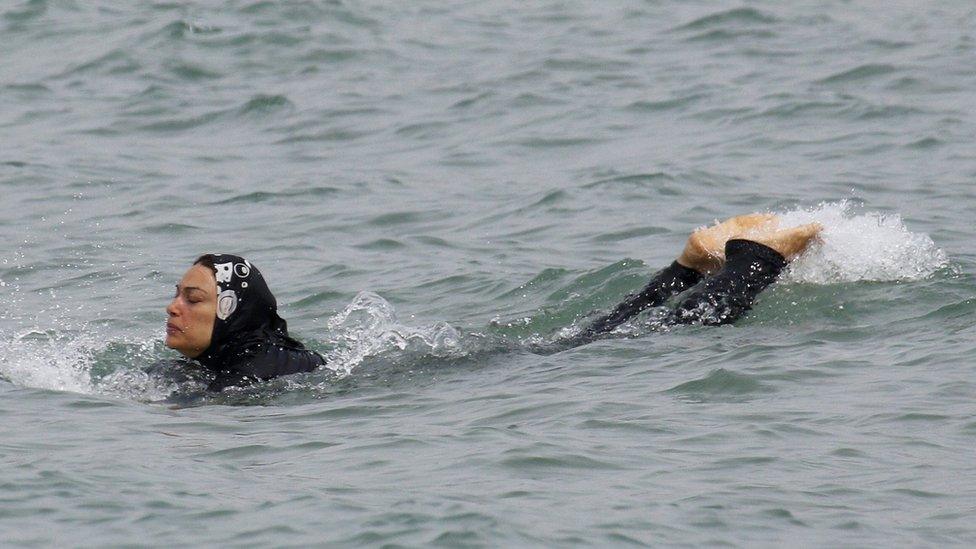
A woman in a burkini in Marseille in southern France
About 30 French mayors have been urged to follow a court ruling which overturned a controversial burkini ban in a resort town.
France's top administrative court suspended the ban in Villeneuve-Loubet on Friday on civil liberties grounds.
However, a number of mayors have said they will continue applying the bathing suit ban.
The human rights lawyer who brought Friday's case has said he will take each town to court.
The ruling by the Council of State found that the ban in Villeneuve-Loubet "seriously and clearly illegally breached fundamental freedoms".
Town hall authorities in Nice and Frejus, as well as in the Corsican village of Sisco, have vowed to keep the bans in place.
Responding to the ruling, Villeneuve-Loubet's Mayor, Lionnel Luca, said: "We need to decide if we want a smiley, friendly version of sharia law on our beaches or if we want the rules of the [French] Republic to be implemented."
French PM Manual Valls wrote on Facebook in support of the bans, saying burkinis were "the affirmation of political Islam in the public space".
A lawyer for the Council of State, Francois Molinie, told Le Monde newspaper, external that mayors of towns still imposing the ban could continue in the short term.
However, he said that they might then face legal action in administrative tribunals which would base their rulings on that of the higher court.
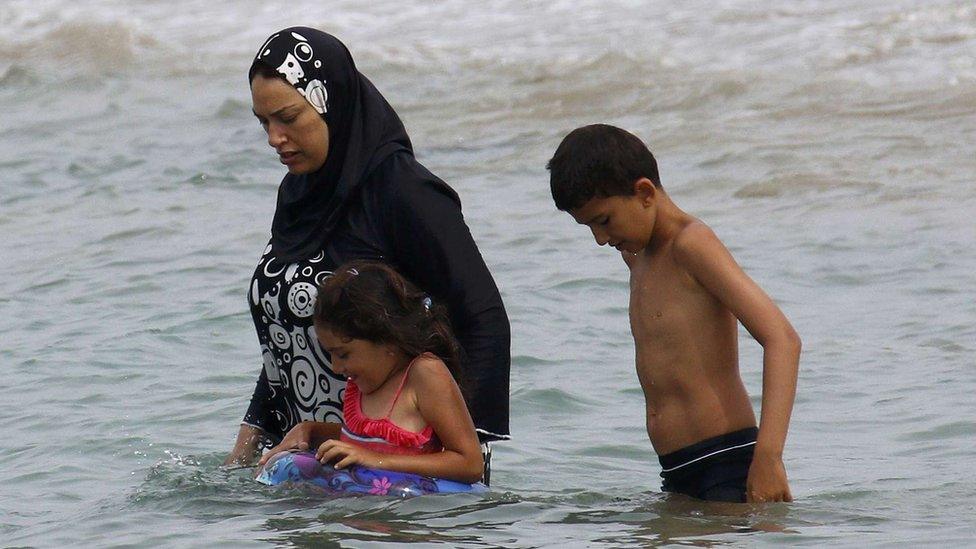
The burkini leaves only the face, hands and feet exposed
Burkinis were not mentioned by name in the bans, with the order simply saying beachwear must be respectful of good public manners and the principle of secularism.
Authorities had said that they were concerned about the public order implications of the religious clothing, especially after attacks in Nice and Paris carried out by people influenced by Islamist extremism.
But while opinion polls suggested most French people backed the bans, they ignited fierce debate in France and around the world, with Muslims saying they were being unfairly targeted.
The controversy deepened when images circulated showing police on a beach appearing to enforce the ban, and a woman removing an item of clothing.
The council of state will make a final decision on the ban's legality at a later date.

Analysis: Hugh Schofield, BBC News, Paris

France's top administrative court
The Council of State decision is a landmark ruling which be used in future cases to overturn similar restrictions on personal liberty by municipal authorities.
Essentially the court said that there has to be a verifiable threat to public order before mayors can intervene to regulate how people dress.
As for the much talked about principle of secularism, that is not the issue, the court said. The state is "laic". People are not. People can be as religious as they like.
There will be more hoo-haa as other seaside towns resist the precedent and continue with the burkini ban. One by one they will be told by the courts to stop.
But that will not be the end. The burkini has become a political issue, and now there is pressure from the right (mainly) for a fully-fledged law to ban it.
Expect it to feature heavily in the upcoming presidential race.

The lawyer behind the Villeneuve-Loubet case, Patrice Spinosi, represents the Human Rights League (LDH).
He brought the case against the town along with the anti-Islamophobia association (CCIF).
Speaking outside the court, he said the decision "is meant to set legal precedent", and that people who had been fined could claim their money back.
Siam, 34, tells how she was recently fined by police on the beach in Cannes for wearing leggings, a tunic and a headscarf
CCIF head Marwan Muhammad praised the ruling but said it "cannot take back the harm which was caused".

'The controversy is far from over' - BBC Monitoring on French media reaction
The burkini debate is front page news in France. An editorial in Le Monde, external called the court ruling suspending the ban "a victory for the state of law". The paper praised the "wisdom" of the decision, after "several weeks of a pervasive controversy that sometimes bordered on hysteria".
Conservative daily Le Figaro, external warned that the ruling seemed "unlikely to ease the summer controversy", and said the French right would renew its calls for Islamic dress to be banned.
The left-of-centre Nouvel Observateur, external echoed Le Figaro, predicting that "the row over the burkini is far from over".

What is a burkini?
A burkini is a full-body swimsuit that covers everything except the face, hands and feet
The name is a mix of the words "burka" and "bikini"
Unlike burkas, burkinis leave the face free
Burkinis are marketed to Muslim women as a way for them to swim in public while adhering to strict modesty edicts
The French bans have referred to religious clothing and as they were loosely phrased, came to be understood to include full-length clothing and head coverings worn on the beach - not just burkini swimsuits

What French law says on secularism and religious clothing
In 2010, France became the first European country to ban the full-face veil in public
A 2004 law forbids the wearing of religious emblems in schools and colleges
The 1905 constitution aims to separate Church and state. It enshrines secularism in education but also guarantees the freedom of religion and freedom to exercise it. The original text made no reference to clothing

- Published26 August 2016

- Published15 August 2016
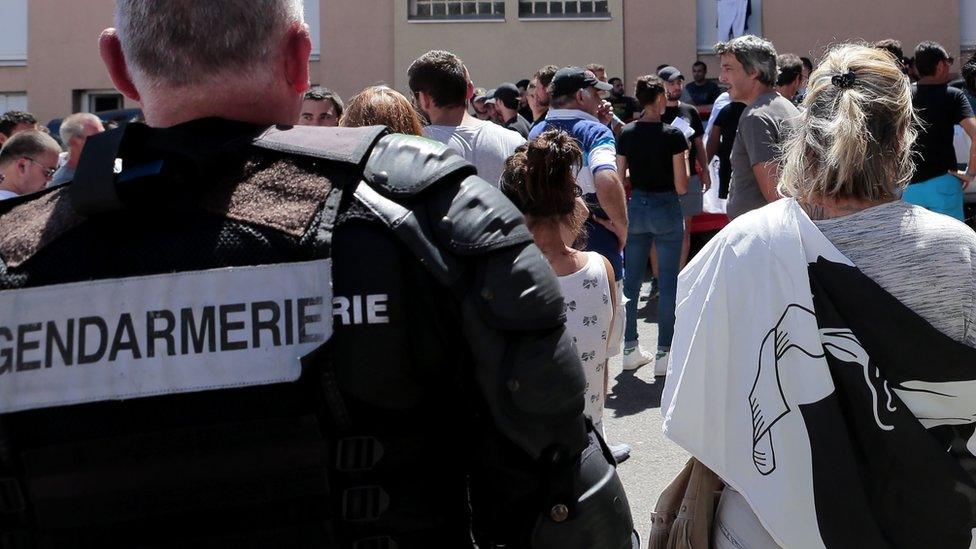
- Published17 August 2016
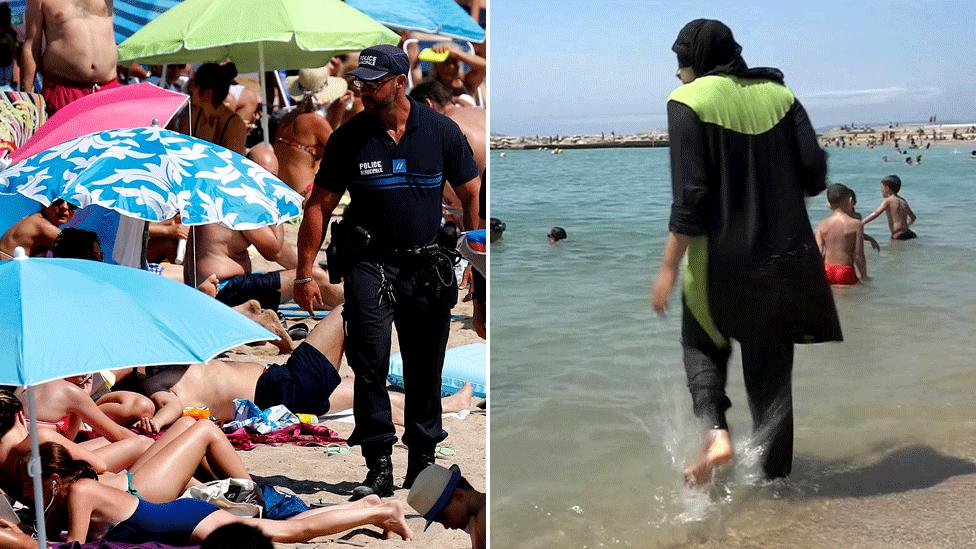
- Published24 August 2016

- Published13 August 2016
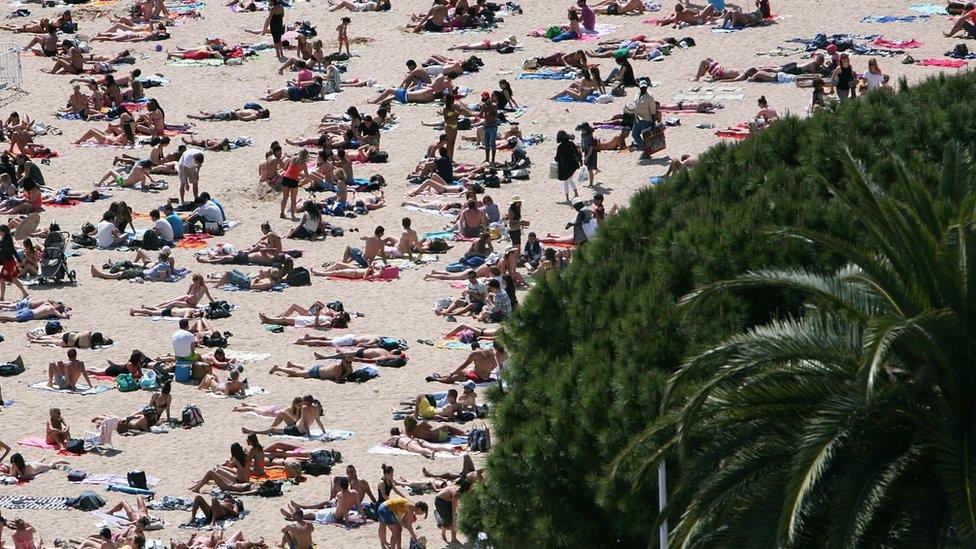
- Published24 August 2016
